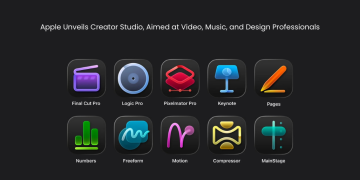Introduction
Home automation is a method used to control, communicate and regulate the devices within a home. Technological devices such as PCs, cellphones, and tablets make automation possible.
Home automation is already happening. You do not need a time machine to go back to the 1920s to witness crucial technological advancements of our time. Using home automation, you can control every aspect of your home without even living in it. While it may seem strange at first, it will soon become a routine like using an oven timer to make that lovely cake you always bake for your loved ones on holidays.
- Home security
- Motion sensors.
These devices will alert you if someone—a child, for example—is moving about the house when no one should be home. These devices also detect intruders or when your dog is rummaging through the trash once more.
- Remote control of lighting and appliances
Break-ins are discouraged by the ability to turn on lights while away from home. It is also a simple way to manage your energy consumption even when not at home. You can also use it in conjunction with motion detectors as a light-based security system that lets you know if people are coming and going from your home when they should not be.
- Cameras for better monitoring of your home
Keep tabs on what is happening in your house with a surveillance system. Whether it is keeping an eye out for intruders or making sure that pets are behaving themselves while you are gone.
- Leak detection
Water damage is one of the most common and expensive problems for homeowners. It is the second most frequent insurance claim in the United States. Leaks from appliances, pipes, and faucets can cause heavy structural damage to your home if left unattended.
Consider automated water leak detectors, which notify you if a pipe breaks or an appliance fails. These gadgets come in small sizes and are easy to use. Place them near any potential water leak risk – under your sink, behind washer-dryer units, next to your aquariums–and let them sense drops of water. If they detect moisture, they will send an alert to your phone or trigger other connected devices (such as lights and alarms) to notify you of possible leaks before they turn into an issue.
- Utility conservation
As you will have seen from the previous sections, home automation technology is and can be very useful. However, many people are unaware of the importance of energy conservation. It is also great for the environment and good for your wallet. Here are some ways that you can use home automation to conserve energy:
- Use energy-saving light bulbs (they use less electricity but provide just as much light).
- Buy Star Certified appliances (they will be more efficient and therefore use less electricity for their lifetime).
- Install motion sensors in rooms that are not used often (these will turn off lights when they detect that no one has been in the room for a certain amount of time).
- Install thermostats (these allow you to adjust the temperature in your house depending on what time of day it is or whether anyone is at home).
- Lawn and garden management
The benefits of home automation extend well beyond indoor uses. There are plenty of outdoor projects you can manage with your automated system. Automated sprinklers water the lawn only at certain times, allowing you to save money on your water bill whenever possible. Additionally, if it rains one morning, take the opportunity to sleep in rather than getting up early and mowing the lawn. An automated mowing robot will do the job for you! Of course, none of these solutions are necessary for a healthy yard—but if you are looking for ways to optimize your lawn energy efficiency, automation is a great way to do it.
- Kitchen appliances
One of the most exciting aspects of creating a smart home is the ability to make your kitchen appliances part of it. While many people will spend more time in their kitchens than in any other room, few people have ever considered making their appliances smarter.
So what makes a piece of kitchen equipment Smart
Certain features qualify an appliance for this label. It must be able to connect to the Internet, collect and analyze data from other devices quickly, and interact with humans so that it may be programmed to execute specific activities.
These appliances also tend to be energy-efficient—a big plus for environmental advocates and families concerned about reducing their monthly utility bills.
Consider the standard refrigerator: it is not outside routine buying and maintenance. And though you may not put much thought into how your fridge works, its features would likely surprise you. Think a refrigerator is just there to keep things cool? You are only partly right! A good fridge can also track inventory, suggest recipes based on their contents, dispense water or ice (and ice cream!), play music or videos on demand, and the list goes on! Other common kitchen appliances, such as ovens (which can automatically warm), dishwashers (which monitor water usage and modify cycles accordingly), coffee machines (which can brew by voice command), and refrigerator magnets, are in the same boat (which can display the weather forecast and crucial messages).
- Home theater control
Home theater is a popular application of home automation. You can use your mobile device to control a television, stereo system, speakers, and other components at the touch of a button. Many people use voice commands or gestures to make their home theater work. Also, you could save money on your energy bills by automating your TV and sound systems when they are not in use.
- Lighting control and automation
Lighting control and automation can be helpful around the house. You can turn lights on or off with simple voice commands through an assistant like Google Home or Amazon Alexa. This technology makes it easy to turn the lights on before getting home. Once you’re out of the house, it’s easy to check whether you remembered to turn off all the lights using your smartphone app (or even just by asking your assistant). If any lights are still on after you leave the house, tell the AI assistant to turn them off for you.
If there are any rooms with motion sensors (like hallways), those sensors can automatically turn the lights on and off for that room as people enter and leave. If someone walks down a hallway when there’s not much light outside, it’ll light up for them automatically as they pass through.
Alternatively, if you’re always forgetting to dim the living room lights at night (or vice-versa in the morning), an AI bulb could do that for you automatically based on its schedule—no need to remember!
Conclusion
Home automation allows you to remotely control your security system from anywhere in the world with an internet connection.The list of uses for home automation is vast, and the applications are incredible. Just look around to see how home automation is impacting our everyday lives. One day you might use an app on your cell phone from your kitchen to turn off your lights in the other room. You might use your iPad to control your connected devices throughout the house. You could even have them working with other devices outside of the house, like garage door openers.






